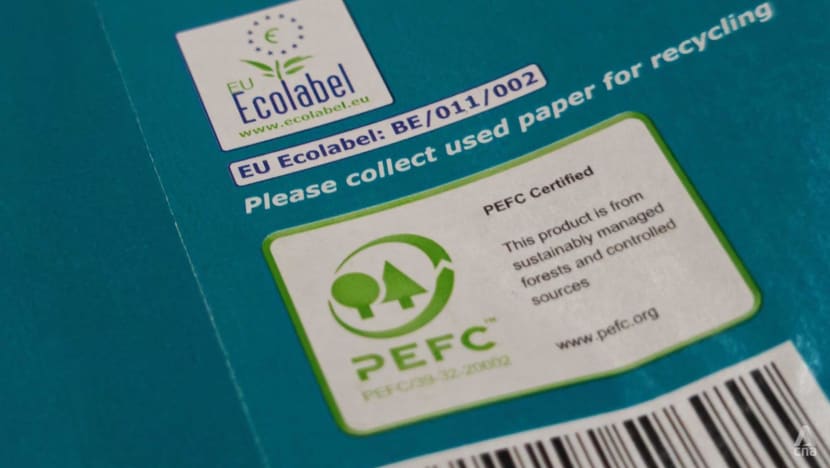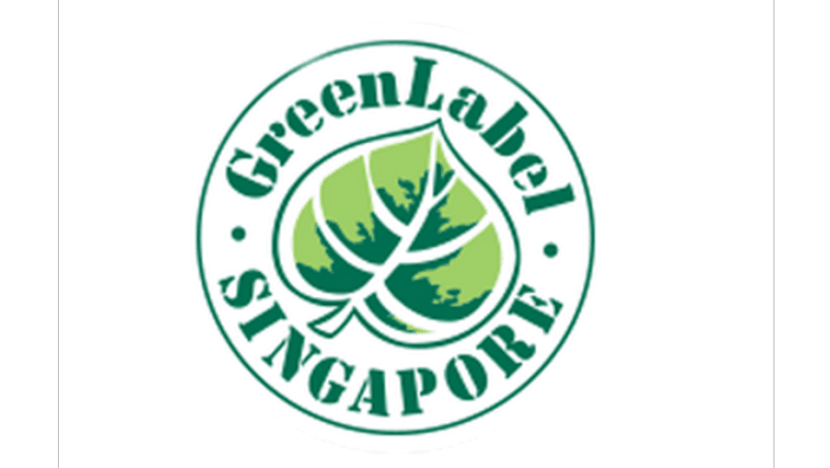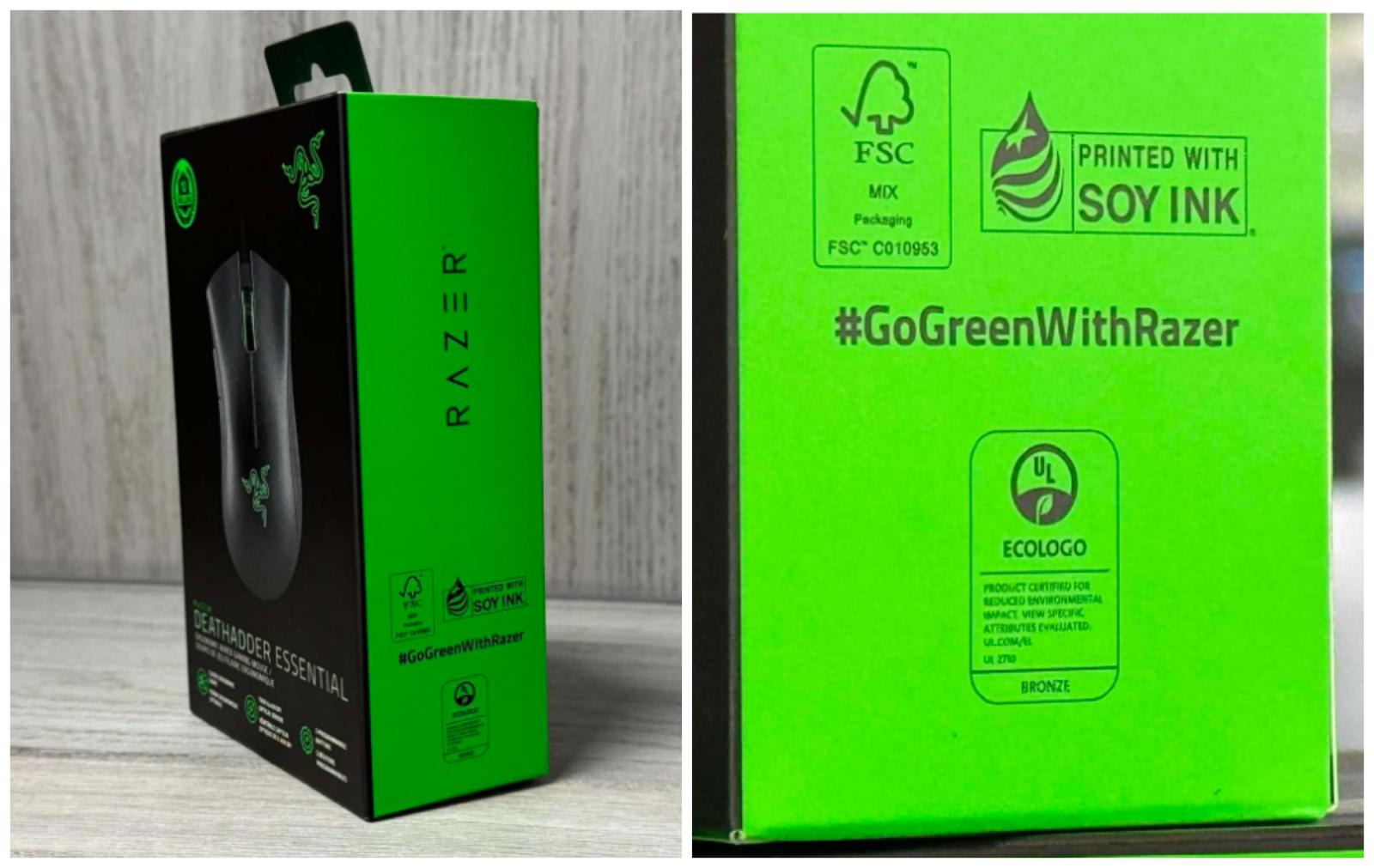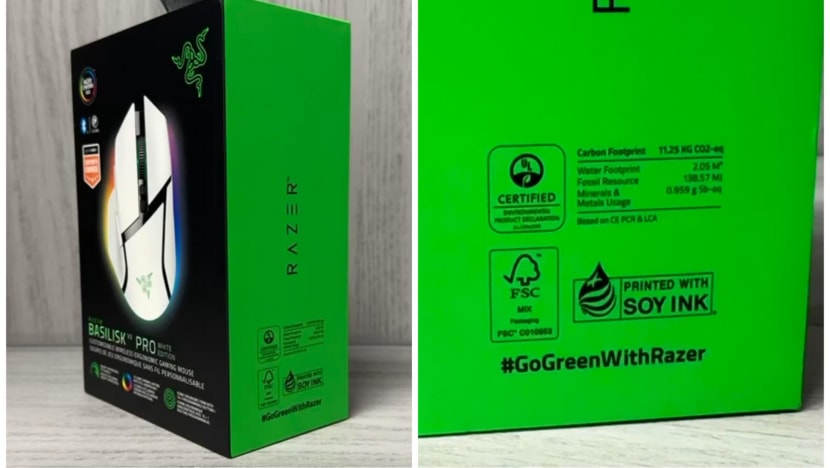CNA Explains: What does that green label on your new purchase mean?
When used properly, green or eco labels can help against greenwashing. CNA's Koh Wan Ting unpacks these terms and breaks down what consumers should look out for.

The Programme for the Endorsement of Forest Certification (PEFC) and the EU Ecolabel on the packaging of A4 paper. The PEFC label comes from a non-profit, non-governmental organisation that promotes sustainable forest management through independent third-party certification; the EU Ecolabel involves assessing the environmental impacts of products throughout their life cycle. (Photo: CNA/Koh Wan Ting)

This audio is generated by an AI tool.
SINGAPORE: Recently picked up an item with a green mark on it, and wondered what it means?
There are hundreds of green or eco labels available in the market, making it more difficult than ever for the consumer to understand their significance - and what it means to purchase such a labelled product.
What are green labels?
They indicate that a product, service or even building has undergone third-party verification, said Nanyang Technological University's (NTU) Associate Professor Kelvin Law, who researches corporate sustainability.
"Just as the laurel wreath was used to crown awarded movies, eco labels are used to distinguish products that meet certain environmental standards," he added.
Eco labels can help environmentally conscious investors and consumers make informed decisions.
Professor Lawrence Loh, director of the Centre for Governance and Sustainability at the National University of Singapore's (NUS) business school described the label as a "first-stop symbol of confidence" for consumers.
Used properly, these labels can also help against greenwashing - the act of making false or misleading claims about the environmental merits of a product, service or technology.

What kinds are there?
The Ecolabel Index presently tracks 456 labels across 25 industry sectors.
Labels can be issued by government bodies and non-profit organisations or private sector, profit-making entities.
The International Organization for Standardization (ISO) provides for three types of environmental labels.
Type One covers eco-labelling schemes where there are clearly defined criteria for products.
The Singapore Green Label, issued under the Singapore Green Labelling Scheme, is a well-known example here.
Administered by the Singapore Environment Council, it has certified more than 3,800 unique products across 43 countries, according to its website.
Global firm UL Solutions also runs a Type One ECOLOGO Certification Programme distinguishing products and services with reduced environmental and health impact.
Its ECOLOGO mark can be found on products such as gaming brand Razer's mice.
Type Two labels are self-declared environmental claims that usually involve one stage of the products' life-cycle. Examples include labels declaring a product "recyclable" or "biodegradable".
Type Three labels contain verified, objective environmental information on the life-cycle of a product, allowing for comparison with other products that perform the same function. These are referred to as the "nutrition label" for the environment.


How are products verified?
Processes vary greatly between certification issuers and there is no "universal standard", said NTU's Assoc Prof Law.
While some issuers rely only on information provided by the company seeking certification, others combine this with their own independent data collection.
They may require documentation of the environmental attributes of the product, with analyses on its life-cycle - from production to disposal - as well as studies of its environmental impact and compliance with environmental standards.
Independent verification may also include on-site inspections by third parties, product tests and a review of production processes.
Even after the labels are awarded, companies and their products may undergo monitoring and regular reassessment to maintain certification.
Does having a label always mean more eco friendly?
Independent certifiers are supposed to undergo accreditation, such as having their assessment methodology approved by ISO to ensure consistent standards.
But there is a lack of academic studies analysing the rigour of these verification processes and how they are audited, said Assoc Prof Law.
Without more transparency and oversight of these processes, it is difficult for consumers and investors to determine the credibility of eco labels, he added.
Assoc Prof Law also pointed out the potential for conflicts of interest between companies who pay fees to for-profit certifiers to get an eco label.
"Certifiers may have incentives to lower their standards or overlook non-compliance to win business. In some cases, certifiers may even provide paid consulting services to help companies meet certification requirements," he added.
What's the main issue with greenwashing?
A survey on greenwashing in marketing claims, published in November by NUS Business School, found that more than half of online product claims came without adequate evidence.
NUS' Prof Loh, one of the academics behind this Competition and Consumer Commission of Singapore-funded study, said some businesses were capitalisating on the pressure or responsibility put on consumers to go green.
"Therefore they appeal to them (through claims of environmental sustainability) and make use of the situation to increase their revenue," he said.
Unsubstantiated "green" claims give companies an unfair advantage over competitors, said NTU's Assoc Prof Law.
"When presented with two identical products or investment opportunities, consumers and investors are more likely to choose the one with green labels such as 'certified green' or '100 per cent natural', even if the claims are not genuine," he said.
He noted it was often impossible for consumers and investors to verify the authenticity of environmental claims without extensive effort, time, and resources.
"Just as we hold medical products and services accountable for false claims, we should do the same for environmental claims.
"This helps level the playing field for companies that are truly committed to sustainability and prevents consumers and investors from being misled by greenwashing tactics," he added.
So what should consumers look out for?
For starters, don't take eco labels at face value, said Assoc Prof Law.
To make informed decisions, consumers should look for clear, transparent standards and frameworks that outline what each label represents and how compliance is verified.
"Without this information, it is hard to assess the true environmental impact of a labelled product compared to its non-labelled counterparts," he said.
Those who encounter unfamiliar eco labels should research:
- The issuing organisation, its reputability, or if the company is a shareholder or affiliate of the certifier
- The meaning behind the label and what environmental standards it represents
- The expiration date of the certification to check if it's current
- The reliability of the certifier, including its track record and if it has a rigorous, transparent verification process
Still, NUS' Prof Loh acknowledged that there were too many labels available in the market.
"It is impossible for consumers to know the ins and outs of all these details, labelling and certification," he said.
But they can visit product websites for evidence substantiating the labels, he suggested.
They should also look out for tell-tale signs like claims that are too good to be true.
For example, a paper product claiming to contribute to the company's net zero goals. That, said Prof Loh, is "too far-fetched" a statement.

















